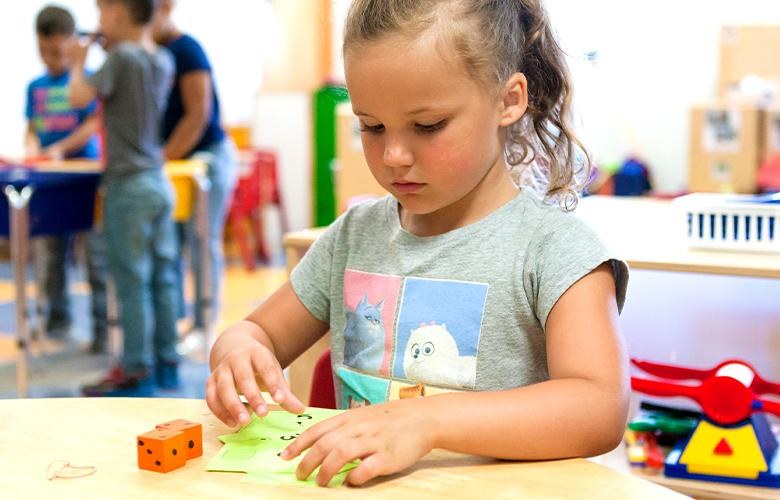What Builds Resilience in Ill Children?
To build resilience in ill children, surround them with supportive relationships that offer understanding and love. Encourage them to express their emotions through therapy and creative activities like art and music. Teach them coping mechanisms such as deep breathing to manage stress effectively. Give them a sense of control by involving them in decision-making and goal-setting. Highlight their strengths and unique qualities to boost their self-identity. By nurturing these aspects, you help your child weather challenges with determination and strength, fostering their ability to bounce back from adversity. Give them the tools to thrive in the face of illness.
Key Takeaways
- Supportive relationships within the family and with peers.
- Teaching coping mechanisms like mindfulness and art therapy.
- Encouraging emotional expression through play and art therapy.
- Empowering children by fostering a sense of control.
- Promoting a positive self-identity through highlighting strengths.
Importance of Supportive Relationships

Building resilience in ill children begins with fostering supportive relationships that provide emotional stability and encouragement during challenging times. Family dynamics play an important role in creating a nurturing environment for a child facing illness. Open communication, empathy, and a sense of togetherness within the family can greatly impact a child’s ability to cope with their condition.
Additionally, peer support offers a unique perspective and understanding that can help the child feel less isolated and more connected to their peers.
Community involvement is another key aspect of building resilience in ill children. Engaging with support groups, local organizations, and healthcare providers can provide a network of resources and emotional support for both the child and their family.
School connections are also essential in maintaining a sense of normalcy and routine for the child. Teachers, counselors, and classmates can offer understanding, accommodations, and a sense of belonging that’s necessary for the child’s well-being during their illness.
Effective Coping Mechanisms

To help ill children navigate the challenges they face, it’s essential to equip them with effective coping mechanisms that promote resilience and emotional well-being.
Two powerful tools that can aid in this process are mindfulness practices and creative outlets.
Encouraging mindfulness practices, such as deep breathing exercises or guided imagery, can help children manage stress and anxiety related to their illness. By teaching them to stay present in the moment and accept their feelings without judgment, mindfulness fosters emotional regulation and reduces feelings of overwhelm.
Additionally, providing children with creative outlets like art therapy, music, or journaling can offer a channel for self-expression and emotional release. Engaging in these activities allows children to explore their thoughts and emotions in a safe and constructive manner, promoting a sense of empowerment and control over their situation.
Encouraging Emotional Expression
Encourage the expression of emotions in ill children as an important step towards promoting their emotional well-being and resilience. When children are facing illness, it’s common for them to experience a wide range of emotions such as fear, sadness, or anger. By encouraging them to express these feelings through art therapy or play therapy, you provide them with a safe outlet to process and communicate their emotions.
Art therapy allows children to express themselves creatively through drawing, painting, or sculpting, enabling them to convey emotions that may be difficult to articulate verbally. Through the use of colors, shapes, and textures, art therapy can help children explore their feelings and experiences in a non-verbal manner, promoting emotional healing and resilience.
Similarly, play therapy offers children a therapeutic way to express themselves through play activities. By engaging in imaginative play scenarios, children can act out their emotions and experiences, gaining insight and coping skills in the process.
Encouraging emotional expression through art and play therapy can aid in building resilience in ill children by fostering emotional awareness and providing healthy coping mechanisms.
Fostering a Sense of Control

Help ill children feel empowered by fostering a sense of control over aspects of their daily lives amidst their health challenges. By offering opportunities for empowerment through choice, you can support these children in building confidence through autonomy. Allowing them to make decisions, even small ones, can have a significant impact on their sense of control and self-esteem.
Encourage the children to have a say in their treatment plans whenever possible. This could involve simple choices like selecting a favorite blanket during a medical procedure or deciding on activities during their hospital stay. By giving them some control over their environment and care, you’re helping them feel more secure and capable.
Additionally, involve the children in setting achievable goals related to their health. Whether it’s following a treatment regimen or practicing self-care activities, having a sense of responsibility can foster a feeling of control over their situation.
Empowering ill children through choice and autonomy can help them navigate their challenges with greater resilience and strength.
Promoting Positive Self-Identity

Promoting a positive self-identity in ill children involves highlighting their strengths and unique qualities to boost their confidence and resilience. Self-esteem development is essential in helping children facing illness navigate their challenges with a sense of worth and belief in themselves.
By affirming their identity and cultivating self-worth, you can empower them to see beyond their illness and focus on their capabilities.
Building self-confidence involves recognizing and celebrating their accomplishments, no matter how small they may seem. Encouraging them to engage in activities they enjoy and excel at can further reinforce their positive self-identity.
Remind them of their resilience in overcoming past obstacles, instilling a sense of capability to tackle future hurdles.
Your role in promoting positive self-identity is crucial, as it forms a strong foundation for resilience in the face of illness. By fostering a sense of self-worth and confidence, you provide these children with the tools they need to navigate their health challenges with strength and determination.
Frequently Asked Questions
How Can Parents Balance Being Supportive Without Being Overbearing?
You can balance being supportive without being overbearing by setting clear parental boundaries. Show emotional support, engage in resilience-building activities together, and maintain school involvement. This approach fosters independence and strength in your child.
Are There Specific Coping Strategies for Different Age Groups?
As you explore coping strategies for different age groups, consider utilizing play therapy and art therapy for younger children, while cognitive restructuring and mindfulness can benefit older kids. Tailoring methods to their developmental stage fosters resilience effectively.
What Role Does Cultural Background Play in Fostering Resilience?
In fostering resilience, your cultural background plays a crucial role. Cultural influences shape coping mechanisms and provide strength through familial traditions. Embrace your heritage, as it can be a source of comfort and empowerment during challenging times.
How Can Children Be Encouraged to Express Complex Emotions?
You can encourage children to express complex emotions by engaging in activities like art therapy for creative expression and play therapy for emotional release. Encourage journaling to enhance emotional intelligence and processing of feelings.
Can Resilience-Building Activities Be Integrated Into School Curriculums?
Integrating resilience-building activities into school curriculums can positively impact students. Classroom integration fosters emotional growth and coping skills. Benefits include improved academic performance and long-term outcomes. Challenges may arise in implementation but are outweighed by the rewards.
Conclusion
To sum up, supporting ill children through nurturing relationships, effective coping strategies, emotional expression, fostering control, and promoting positive self-identity can all help build resilience in challenging times.
By providing these key elements, you can empower children to navigate their health struggles with strength and courage.
Remember, your support and understanding play a vital role in helping these children thrive in the face of adversity.
Stay by their side and show them the love and encouragement they need to persevere.

Chad Adan Kace, a young dad from Vermont, shares his parenting journey with a touch of humor and lots of love. Father to a lively baby, he explores the joys and challenges of fatherhood through his stories.







